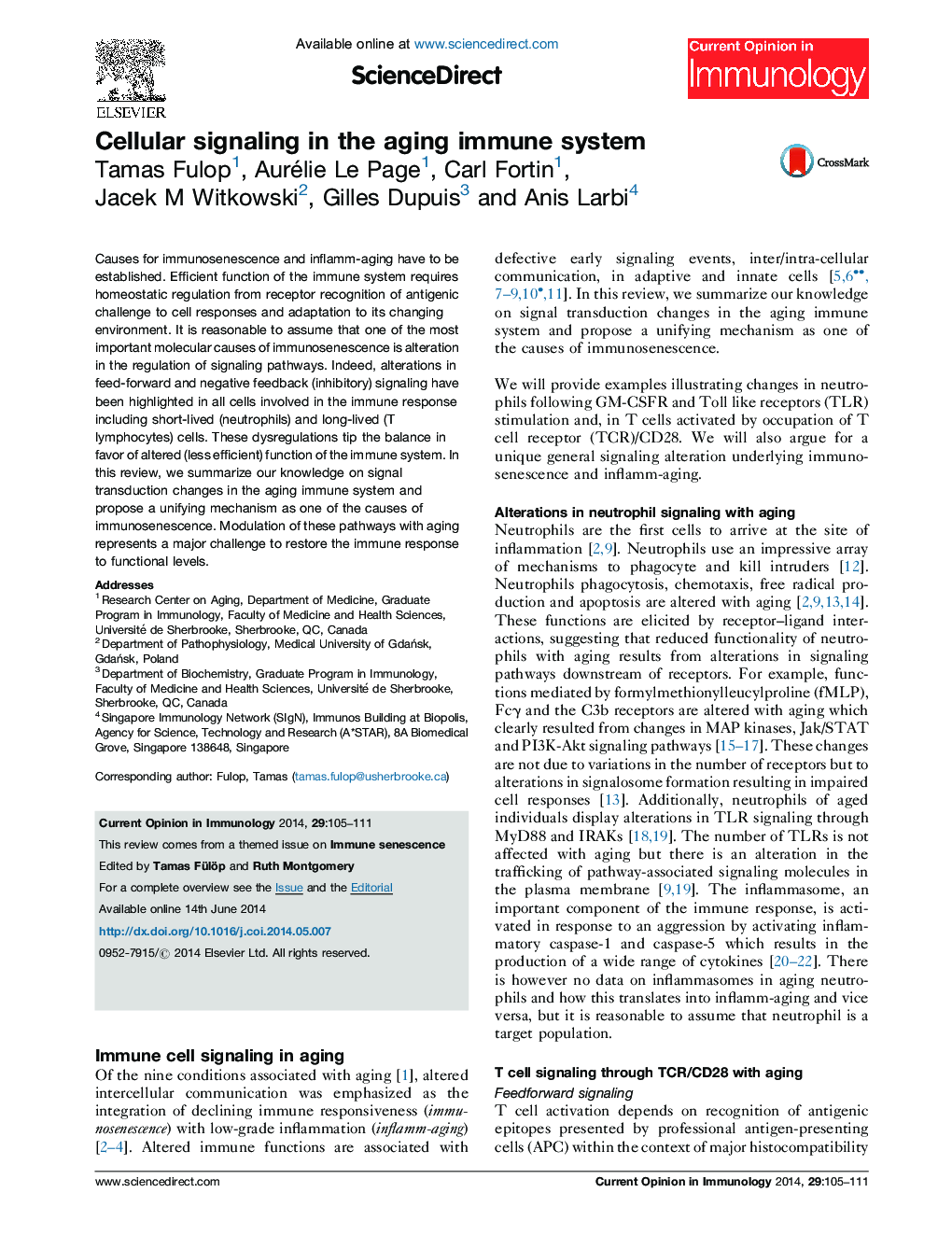| کد مقاله | کد نشریه | سال انتشار | مقاله انگلیسی | نسخه تمام متن |
|---|---|---|---|---|
| 3345904 | 1591312 | 2014 | 7 صفحه PDF | دانلود رایگان |
• There is a general signal transduction alteration in immune cells with human aging.
• The most important changes occur at the proximal signaling of TCR.
• Not only the feed-forward but also the inhibitory feedback are altered with aging.
• Membrane changes altering lipid raft functions might be a unique underlying mechanism.
• Modulation at various nodes may be beneficial.
Causes for immunosenescence and inflamm-aging have to be established. Efficient function of the immune system requires homeostatic regulation from receptor recognition of antigenic challenge to cell responses and adaptation to its changing environment. It is reasonable to assume that one of the most important molecular causes of immunosenescence is alteration in the regulation of signaling pathways. Indeed, alterations in feed-forward and negative feedback (inhibitory) signaling have been highlighted in all cells involved in the immune response including short-lived (neutrophils) and long-lived (T lymphocytes) cells. These dysregulations tip the balance in favor of altered (less efficient) function of the immune system. In this review, we summarize our knowledge on signal transduction changes in the aging immune system and propose a unifying mechanism as one of the causes of immunosenescence. Modulation of these pathways with aging represents a major challenge to restore the immune response to functional levels.
Journal: Current Opinion in Immunology - Volume 29, August 2014, Pages 105–111
